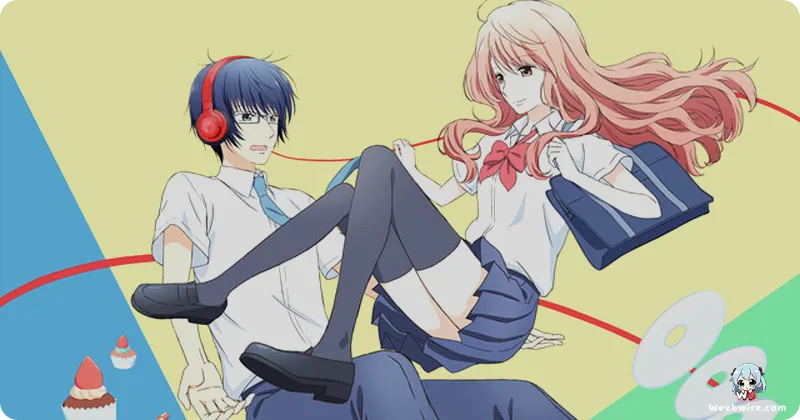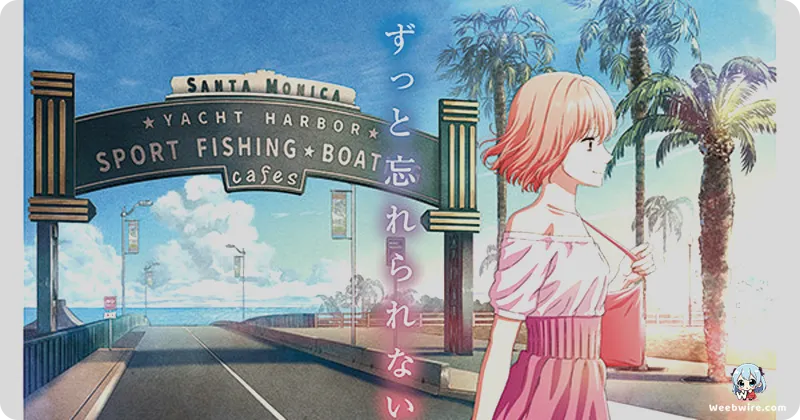The 'Real Girl' Phenomenon: Unpacking the Nuances of an Unlikely Romance and Its Enduring Legacy
4 months ago
Share this news:

In the dynamic landscape of romance anime, "Real Girl," known in Japan as "3D Kanojo: Real Girl," distinguishes itself with an authentic portrayal of an unlikely high school romance. Far from a typical love story, it follows the journey of Hikari Tsutsui, an introverted otaku, as he unexpectedly falls for the popular and beautiful Iroha Igarashi. This series delves beyond superficial appearances, offering a rich exploration of character development, societal perceptions, and the often complex reality of human connection.
Understanding the "3D Kanojo" Title
A key insight lies in the Japanese title, "3D Kanojo," which translates to "3D Girlfriend." This naming convention captures Tsutsui's initial worldview, where life existed primarily within his comforting 2D anime and manga worlds. The idea of a "3D" (real life) girlfriend was intimidating, making the title a subtle yet potent symbol of his transformation from a sheltered existence to embracing the complexities of the real world through his relationship with Iroha.
Authentic Portrayal of Tsutsui's Otaku Identity
The series excels in its authentic depiction of Tsutsui's otaku identity. Unlike many anime that might caricature such characters, "Real Girl" portrays Tsutsui's social awkwardness, deep seated anxieties, and preference for fictional escapism with remarkable nuance. His struggles with communication and self esteem are genuinely relatable, making his personal growth throughout the series profoundly impactful. This authenticity allows viewers to connect with Tsutsui, understanding his initial resistance to Iroha as a manifestation of insecurity rather than disdain.
Iroha Igarashi: The Titular "Real Girl"
Iroha Igarashi, the titular "Real Girl," is equally rich in unexpected depth. She actively defies typical tropes associated with popular, beautiful high school girls. Iroha is direct and candid, yet beneath her seemingly carefree demeanor lies remarkable kindness, understanding, and almost saint like patience. Her willingness to see past Tsutsui's otaku exterior and genuinely connect with the person within is a foundational strength of the series, challenging both his and the audience's preconceived notions. Her arc is one of mutual understanding and acceptance, rather than solely a catalyst for Tsutsui's change.
Manga Origins and Studio Versatility
For those eager to delve deeper, Mao Nanami's original manga series ran extensively from July 2011 to May 2016, spanning 12 volumes. While Hoods Entertainment's anime adaptation skillfully covers the core narrative, the manga offers a richer, more detailed experience of Tsutsui and Iroha's relationship nuances and supporting characters' backstories. Hoods Entertainment, known for diverse works including action series, showcases its versatility in "Real Girl" by expertly handling subtle emotional storytelling and intricate character expressions, crucial for conveying the genuine awkwardness, joy, and sorrow of the journey.

Tackling Realistic Relationship Challenges
One of the series' most commendable strengths is its commitment to tackling realistic relationship challenges. Unlike many shojo or romance anime that rely on dramatic misunderstandings, "Real Girl" confronts everyday hurdles: jealousy, insecurity, communication struggles, and navigating societal perceptions. This grounding in realism makes the romance feel earned and deeply relatable, allowing viewers to see reflections of their own experiences. It's a refreshing departure from idealized love stories, anchoring the narrative in authentic human experience.
Furthermore, "Real Girl" is more than a simple "makeover" story. While Iroha inspires Tsutsui to step out of his comfort zone, the central message is about him finding self confidence and learning to balance his passions with real world connections, not abandoning his hobbies entirely. It’s a powerful narrative of self acceptance and healthy integration. The exceptional voice acting by Teppei Uenishi as Hikari and Yu Serizawa as Iroha further elevates the believable dynamic between the leads.
The supporting cast, including Yuuto Itou, Tsutsui's fellow otaku friend, and Arisa Ishino, Iroha's outspoken best friend, are integral. They provide essential emotional support, introduce realistic conflicts, and inject comedic relief, enriching the narrative and highlighting the importance of a supportive social circle.
Finally, the story's broad appeal is underscored by a 2018 live action film adaptation, starring Ayami Nakajo as Iroha and Hayato Sano as Tsutsui. This adaptation attests to the universal themes of love, acceptance, and personal growth at the heart of Mao Nanami's creation. The enduring impact of "Real Girl" lies in its dedication to exploring the "real" in relationships, delivering a narrative that is both profoundly relatable and deeply moving.